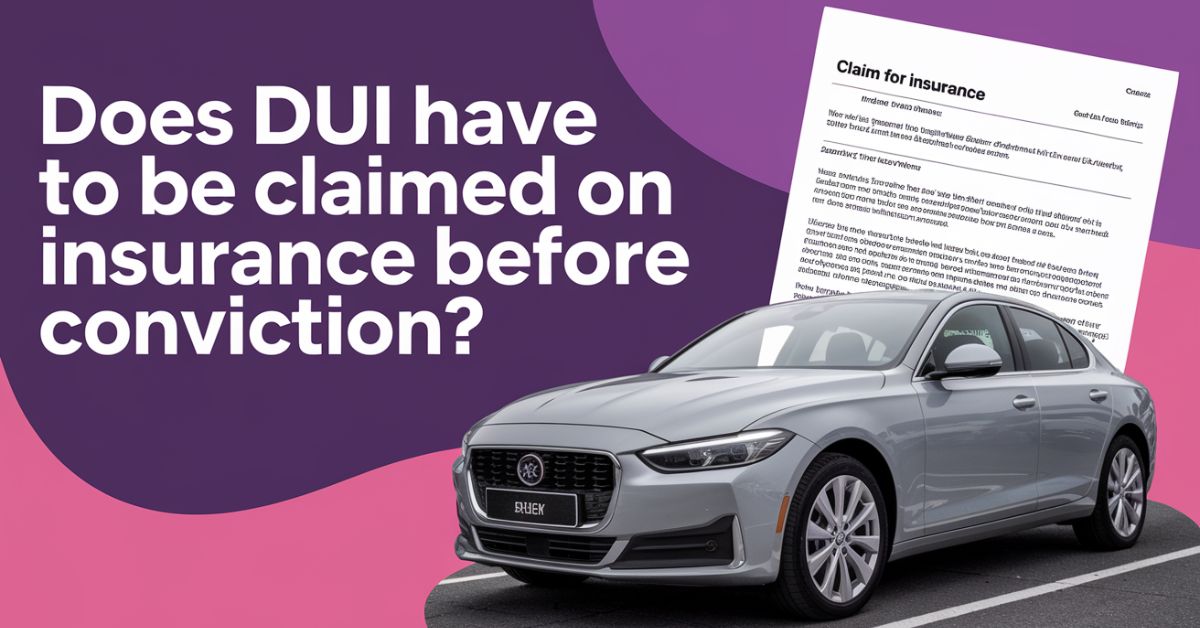DUI insurance is a type of car insurance for people who have been caught driving under the influence. It’s often more expensive than regular car insurance. Many people wonder if they have to tell their insurance company about a DUI before they’re found guilty in court.
Getting a DUI can be scary and confusing. You might worry about what will happen to your driving record and your insurance. Will your rates go up? Do you have to tell your insurance company right away?
In this article, we’ll talk about DUI insurance and whether you need to tell your insurer about a DUI before you’re convicted. We’ll also look at how a DUI can affect your insurance rates and what you can do to keep your costs down.
What is DUI Insurance?
DUI insurance is not a special type of insurance you can buy. It’s the term used for car insurance after you’ve been caught driving under the influence. When you get a DUI, your regular car insurance might get more expensive or your insurer might even cancel your policy.
Insurance companies see people with DUIs as high-risk drivers. They think these drivers are more likely to get into accidents. Because of this, they often charge higher rates for DUI insurance. Some insurers might not want to cover drivers with DUIs at all.
DUI insurance can be a big financial burden. The extra cost is on top of other DUI-related expenses like fines, legal fees, and alcohol education classes. It’s one more reason why driving under the influence is a bad idea.
Do You Have to Report a DUI to Your Insurance Company?
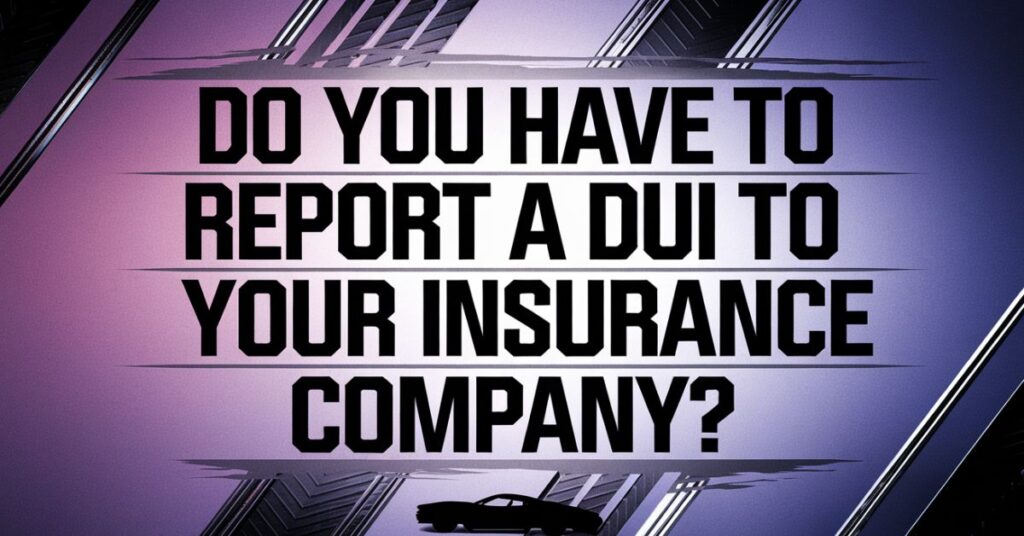
Many people wonder if they have to tell their insurance company about a DUI right away. The answer isn’t always simple. It depends on your state laws and your insurance policy.
In some states, you don’t have to report a DUI to your insurer until you’re found guilty in court. This process can take weeks or even months. During this time, your insurance rates might not change. However, in other states, you might need to report a DUI as soon as you’re charged.
It’s important to check your insurance policy. Some policies require you to report any changes in your driving record right away. If your policy has this rule and you don’t report a DUI, your insurer could cancel your policy for not being honest.
The Impact of DUI on Insurance Rates
Getting a DUI can have a big effect on your car insurance rates. What you need to know:
- Insurance companies often raise rates after a DUI conviction.
- The increase can be significant, sometimes doubling or tripling your premium.
- The higher rates usually last for 3 to 5 years after the DUI.
- Some insurers might refuse to renew your policy after a DUI.
- You might need to get high-risk or “non-standard” insurance.
How to Handle DUI Insurance?
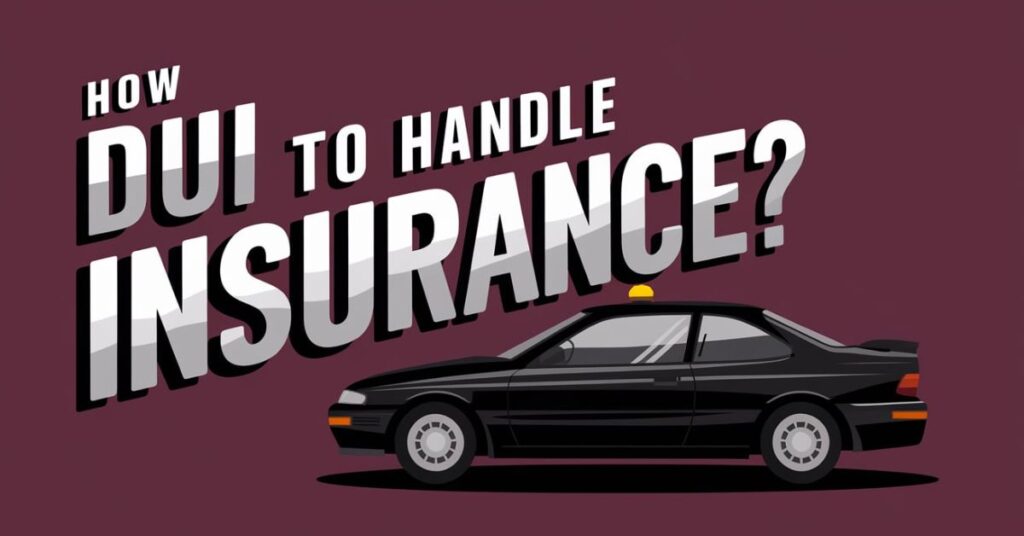
Dealing with DUI insurance can be tricky. Some steps you can take:
1. Check Your Current Policy
First, look at your current insurance policy. See if it says anything about reporting changes to your driving record. This will help you decide if you need to tell your insurer about a DUI right away.
2. Know Your State Laws
Each state has different laws about DUIs and insurance. Some states require insurers to cover drivers after a DUI. Others let insurers cancel policies. Learn your state’s rules to know what to expect.
3. Consider Waiting to Report
If your policy and state laws allow it, you might want to wait to report a DUI until you’re convicted. This could give you time to shop for new insurance before your rates go up.
4. Be Honest When Asked
If your insurer asks about your driving record, always be honest. Lying to an insurance company is fraud and can get you in serious trouble.
5. Shop Around for New Insurance
After a DUI, your current insurer might raise your rates a lot. It’s a good idea to get quotes from other companies. Some insurers are more forgiving of DUIs than others.
SR-22 and FR-44 Requirements
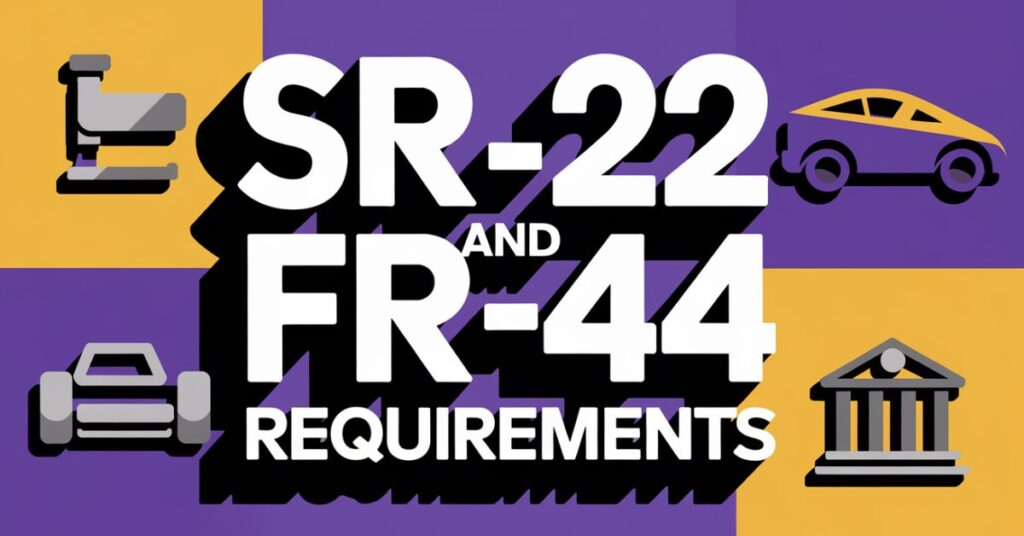
After a DUI, you might need to file an SR-22 or FR-44 form. These forms show that you have the minimum required car insurance in your state.
An SR-22 is a certificate that proves you have car insurance. Most states require this after a DUI. Your insurance company files this form with the state. You usually need to keep an SR-22 for 3 to 5 years after a DUI.
Some states, like Florida and Virginia, use FR-44 forms instead. These are similar to SR-22s, but they require higher insurance limits. This means your insurance will cost even more.
Having to file an SR-22 or FR-44 is a sign to insurers that you’re a high-risk driver. This often leads to higher DUI insurance rates.
Read this article: Does Ambetter Cover Couples Insurance in Kansas?
Comparison of DUI Insurance Rates
A simple comparison of how DUI insurance rates might look compared to regular rates:
| Insurance Type | Average Monthly Rate | Average Yearly Rate |
| Regular | $100 | $1,200 |
| After DUI | $250 | $3,000 |
Remember, these are just examples. Your actual rates will depend on many factors, including your location, driving history, and insurance company.
Alternatives to Traditional DUI Insurance
If you’re having trouble finding affordable DUI insurance, you have some options. These might help you get the coverage you need at a price you can afford.
Non-owner car insurance is one choice. This type of policy covers you when you drive cars you don’t own. It’s usually cheaper than regular car insurance. This can be a good option if you don’t own a car but still need to drive sometimes.
Usage-based insurance is another option. With this type of policy, your rates are based on how much and how well you drive. The insurance company tracks your driving with a device in your car. If you drive safely, you might get lower rates even with a DUI on your record.
Some insurance companies offer special programs for high-risk drivers. These programs might include lower rates if you take defensive driving courses or use an ignition interlock device.
Steps to Lower Your DUI Insurance Rates
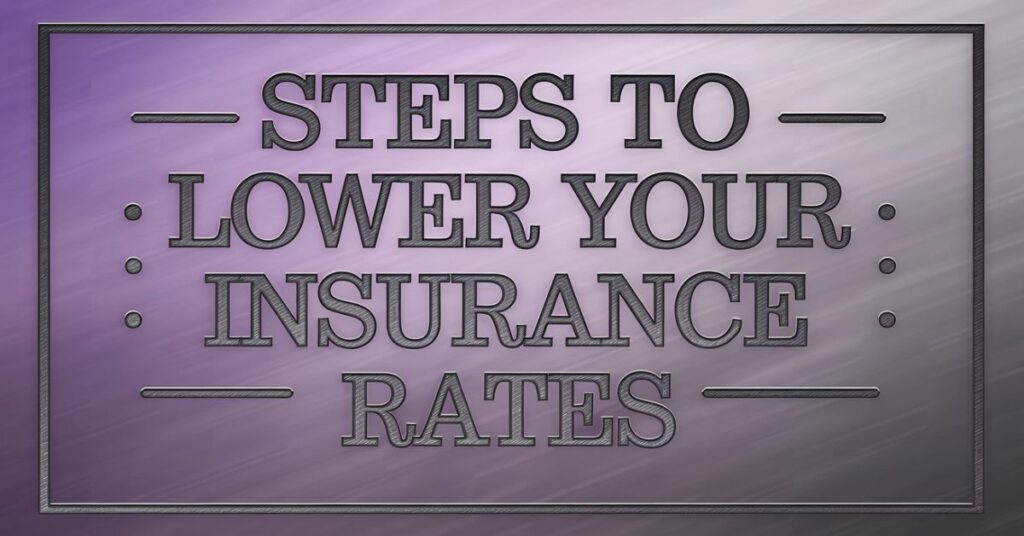
Getting cheaper DUI insurance isn’t easy, but it’s possible. Here are some things you can do to try to lower your rates:
Take a defensive driving course. Many insurers offer discounts for completing these classes. They show you’re trying to become a safer driver.
Install an ignition interlock device. This device prevents your car from starting if you’ve been drinking. Some insurers give discounts for using these devices.
Improve your credit score. In many states, insurers use credit scores to set rates. A better credit score could mean lower insurance rates.
Choose a car with good safety ratings. Safe cars are cheaper to insure. If you’re buying a new car, look for one with strong safety features.
Increase your deductible. A higher deductible means you’ll pay more if you have an accident, but it also lowers your monthly payments.
Long-Term Effects of DUI on Insurance
A DUI can affect your insurance for a long time. Most insurers look at your driving record for the past 3 to 5 years when setting rates. This means you’ll likely pay higher rates for DUI insurance during this time.
After 3 to 5 years, your rates might start to go down if you haven’t had any more driving violations. However, some insurers might look at DUIs for up to 10 years. This means a DUI could affect your insurance rates for a very long time.
It’s not just your car insurance that can be affected. A DUI can also make it harder or more expensive to get life insurance or homeowners insurance. Insurance companies see a DUI as a sign of risky behavior.
Legal Considerations and DUI Insurance
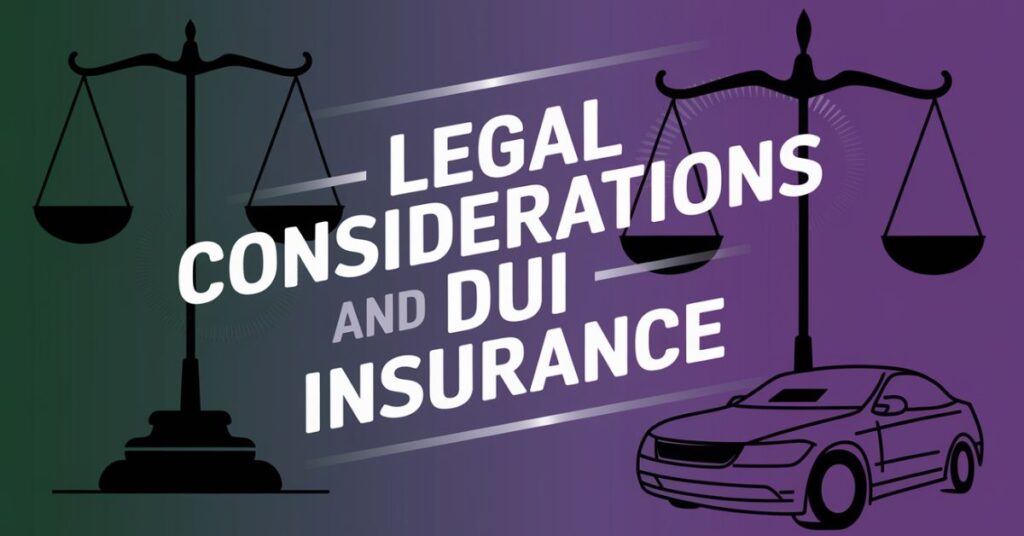
When dealing with DUI insurance, there are some legal things to keep in mind:
1. State Laws Vary
Each state has different laws about DUIs and insurance. Some states require insurers to cover drivers after a DUI. Others let insurers cancel policies. Know your state’s rules.
2. Mandatory Insurance Laws
Most states require drivers to have car insurance. After a DUI, you might need more coverage than the state minimum. Make sure you meet all legal requirements.
3. SR-22 and FR-44 Requirements
As mentioned earlier, you might need to file an SR-22 or FR-44 form after a DUI. This is a legal requirement in many states. Failing to file these forms could result in losing your license.
Tips for Dealing with DUI Insurance
Handling DUI insurance can be tough. Some tips to help:
- Be honest with your insurer. Lying about a DUI can lead to bigger problems.
- Shop around for quotes. Different insurers have different rates for DUI insurance.
- Consider working with an insurance broker. They can help you find the best rates.
- Look into all available discounts. Every little bit helps when dealing with high DUI insurance rates.
- Consider taking public transportation or carpooling to reduce your driving and potentially lower your rates.
Final Words
Dealing with DUI insurance can be challenging and expensive. Whether you need to report a DUI to your insurer before conviction depends on your policy and state laws. It’s important to understand these rules to avoid problems with your insurance coverage.
A DUI can have long-lasting effects on your insurance rates. You might pay higher premiums for several years after a conviction. However, there are steps you can take to try to lower your rates, like taking defensive driving courses or shopping around for better deals.
Remember, the best way to avoid high DUI insurance rates is to never drive under the influence. Always plan for a safe ride home if you’re going to drink. It’s not just about saving money on insurance – it’s about keeping yourself and others safe on the road.
Frequently Asked Questions
How long will a DUI affect my insurance rates?
A DUI typically affects insurance rates for 3 to 5 years, but some insurers may consider it for up to 10 years.
Can I get car insurance after a DUI?
Yes, you can get car insurance after a DUI, but it will likely be more expensive and you may need to shop around.
What is an SR-22 form?
An SR-22 is a form filed by your insurer to prove you have the minimum required car insurance after a DUI or other serious violation.
Will my insurance company find out about my DUI if I don’t tell them?
Eventually, yes. Insurance companies regularly check driving records, especially when policies are renewed.
Can I lose my insurance because of a DUI?
Yes, some insurance companies may cancel your policy after a DUI, especially if you have other violations on your record.

David: Seasoned financial expert with 5 years in banking and investments.
Skilled in personal finance, market analysis, and wealth management. Empowers clients to achieve financial goals.

